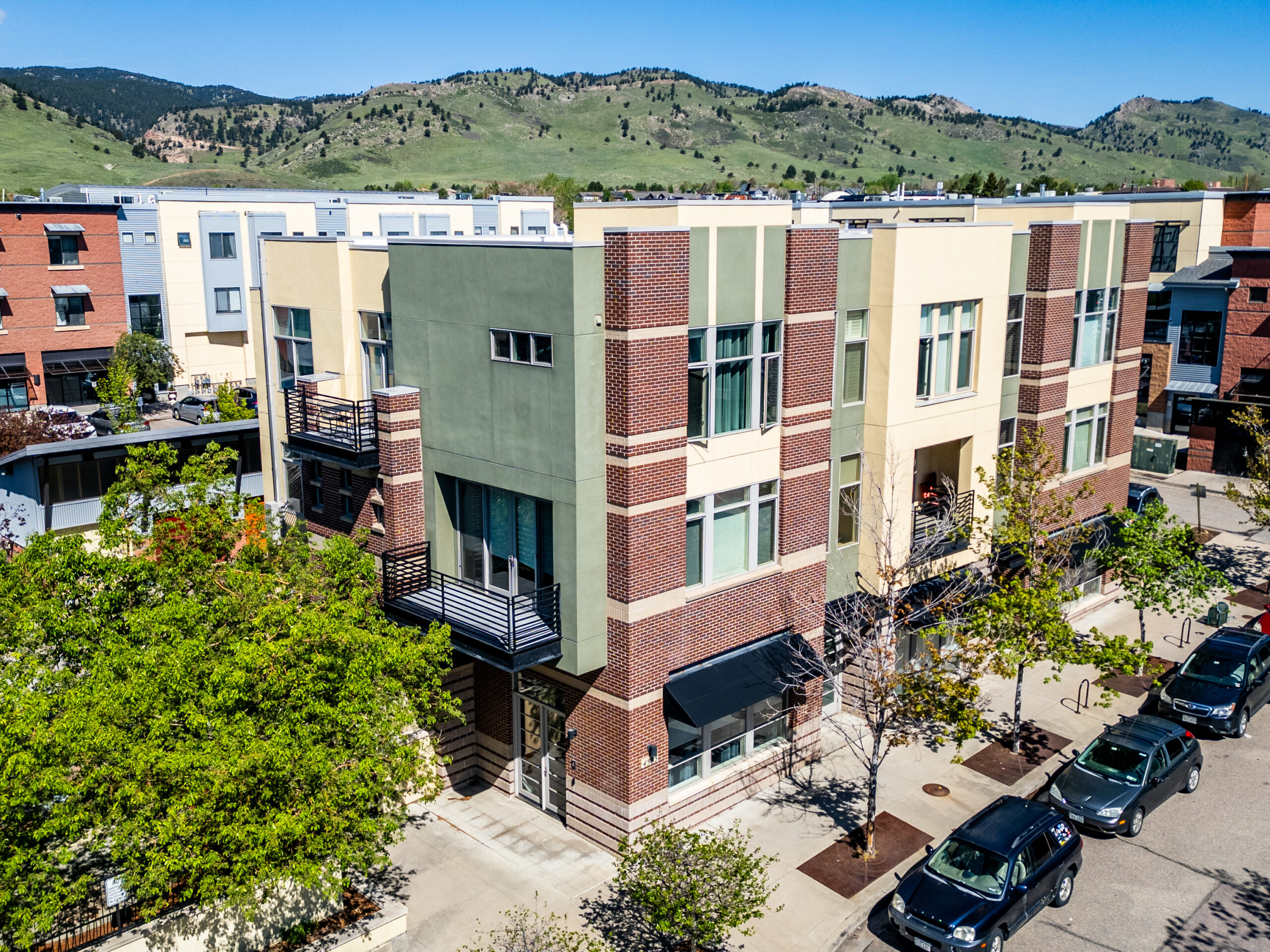The Job Market and Real Estate Prices in Boulder [Analyze This]
by Osman Parvez
Sipping my coffee this morning, I found myself pondering the sustainability of rapidly rising prices in Boulder. Last year, the average sale price increased 11.2% for houses and 9.8% for town homes and condos.
I ended up looking at unemployment charts.
The job market and housing have a direct relationship in primary (not vacation home) markets. It’s not difficult to fathom that to purchase homes, buyers need to be well employed.
A couple of charts to consider:
This chart above shows the unemployment rate in the United States (red line) compared to Colorado (blue line). Looking at the chart, it’s clear that during strong economic periods, Colorado experienced a far lower unemployment rate. It also lost jobs slower and recovered faster than the United States in general.
None of this should be surprising. In recent years, Colorado has had a stronger economy than the rest of the country and increasingly is a powerhouse of innovation. Boulder in particular has attracted a surprising number of technology companies and has a healthy startup community.
Of course, the unemployment rate is a flawed metric for many reasons. It’s consistently wrong (in recent history), so still a useful metric to consider but let’s flip it around and look at employment itself.
The chart above shows seasonally adjusted employment in Colorado (blue) and several neighboring states. What’s evident is that the volume of jobs in Colorado is approaching the 2008 peak. Other states have similar patterns but the growth rate is steeper for Colorado since 2010.
Looking at just the period since 2010, the job growth between Colorado and our neighboring states becomes clearer. Utah added 6.8% and Colorado 4% to the employment rolls last year. Arizona skidded sideways and New Mexico added only 1.3%. See the table below.
Here in Boulder, our housing market has unusual features including a deeply constrained supply of new construction and an extremely stable employment base (CU and federal institutions). It also doesn’t hurt that Boulder continues to rack up awards and accolades, year after year, for being a fantastic community.
Nobody has a crystal ball but it’s smart to track the job market. Tomorrow morning, the BLS will release new employment numbers and as our economy continues to recover, it’s worth paying attention to it. If you care about housing in Colorado, it’s particularly important to track how our state (and region) is performing relative to other parts of the country.
Additional Reading:
Rising Home Prices and Falling Unemployment: Don’t Trust the Numbers
Unstoppable Demographics Drive Housing Demand in Colorado
Understanding Appreciation Rates
note: The charts above are from Google Public Data Visualization. Check it out.
—
The Job Market and Real Estate Prices in Boulder [Analyze This]
by Osman Parvez
Sipping my coffee this morning, I found myself pondering the sustainability of rapidly rising prices in Boulder. Last year, the average sale price increased 11.2% for houses and 9.8% for town homes and condos.
I ended up looking at unemployment charts.
The job market and housing have a direct relationship in primary (not vacation home) markets. It’s not difficult to fathom that to purchase homes, buyers need to be well employed.
A couple of charts to consider:
This chart above shows the unemployment rate in the United States (red line) compared to Colorado (blue line). Looking at the chart, it’s clear that during strong economic periods, Colorado experienced a far lower unemployment rate. It also lost jobs slower and recovered faster than the United States in general.
None of this should be surprising. In recent years, Colorado has had a stronger economy than the rest of the country and increasingly is a powerhouse of innovation. Boulder in particular has attracted a surprising number of technology companies and has a healthy startup community.
Of course, the unemployment rate is a flawed metric for many reasons. It’s consistently wrong (in recent history), so still a useful metric to consider but let’s flip it around and look at employment itself.
The chart above shows seasonally adjusted employment in Colorado (blue) and several neighboring states. What’s evident is that the volume of jobs in Colorado is approaching the 2008 peak. Other states have similar patterns but the growth rate is steeper for Colorado since 2010.
Looking at just the period since 2010, the job growth between Colorado and our neighboring states becomes clearer. Utah added 6.8% and Colorado 4% to the employment rolls last year. Arizona skidded sideways and New Mexico added only 1.3%. See the table below.
Here in Boulder, our housing market has unusual features including a deeply constrained supply of new construction and an extremely stable employment base (CU and federal institutions). It also doesn’t hurt that Boulder continues to rack up awards and accolades, year after year, for being a fantastic community.
Nobody has a crystal ball but it’s smart to track the job market. Tomorrow morning, the BLS will release new employment numbers and as our economy continues to recover, it’s worth paying attention to it. If you care about housing in Colorado, it’s particularly important to track how our state (and region) is performing relative to other parts of the country.
Additional Reading:
Rising Home Prices and Falling Unemployment: Don’t Trust the Numbers
Unstoppable Demographics Drive Housing Demand in Colorado
Understanding Appreciation Rates
note: The charts above are from Google Public Data Visualization. Check it out.
—
Share This Listing!
More about the author
Osman Parvez
Owner & Broker at House Einstein as well as primary author of the House Einstein blog with over 1,200 published articles about Boulder real estate. His work has appeared in the Wall Street Journal and Daily Camera.
Osman is the primary author of the House Einstein blog with over 1,200 published articles about Boulder real estate. His work has also appeared in many other blogs about Boulder as well as mainstream newspapers, including the Wall Street Journal and Daily Camera. Learn more about Osman.
Work with
House Einstein
Thinking about buying or selling and want professional advice?
Call us at 303.746.6896
Your referrals are deeply appreciated.


















